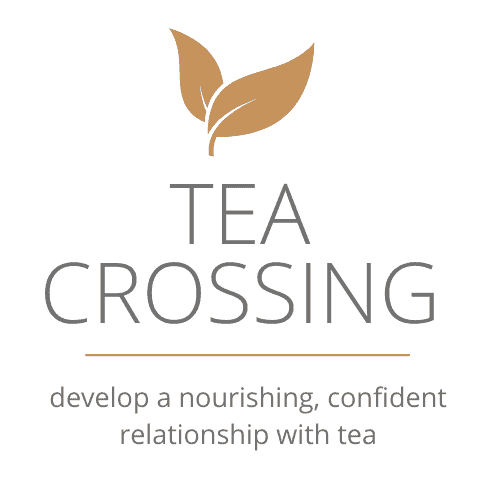Headaches are a common problem that many people experience. Can tea help? Which tea is good for headaches? There are many different causes of headaches, including stress, tension, and allergies. Luckily, there are also many different treatments for headaches, including over-the-counter medications and natural remedies. One natural remedy that is often recommended for headaches is tea. In this blog post, I will discuss which teas are good for headaches and how they can help relieve the pain.
Many different types of tea can be helpful for headaches. Some of the most popular options include chamomile, ginger, and peppermint tea. Each of these teas has unique properties that can help to relieve pain and tension.
Let’s take a closer look at some of the teas
Chamomile Tea
This tea has been used as a natural remedy for headaches for centuries. The herb is thought to contain compounds that have anti-inflammatory and pain-relieving properties. Chamomile tea is generally safe to drink and has few side effects. However, some people may be allergic to the herb. If you experience any adverse reactions after drinking chamomile tea, discontinue use and speak with your doctor.
To make chamomile tea:
- Add one or two teaspoons of dried chamomile flowers to a cup of boiling water.
- Steep for five minutes, then strain the tea and sweeten with honey if desired.
- Drink three cups of chamomile tea per day until your headache subsides.
- You can also apply a chamomile compress to your forehead for additional relief.
If you suffer from chronic headaches, speak with your doctor to rule out any underlying medical conditions. Chamomile tea may provide some relief, but it is not a cure-all solution.

Peppermint Tea
There are a few different ways to make peppermint tea, but the most common is to steep peppermint leaves in hot water. Some people like to add honey or sugar to their tea, but I find that the mint flavor is strong enough on its own.
Peppermint tea has a refreshing and cooling effect, which can be helpful for headaches. The menthol in peppermint can also help to clear congestion and soothe an upset stomach. Peppermint tea is caffeine-free, so it’s a good choice if you’re trying to avoid caffeine.
If you want to try making your peppermint tea, you can buy dried peppermint leaves online or at many health food stores. Just be sure to get pure peppermint leaves, without any added ingredients.
Ginger Tea
Some people find that ginger ale helps to relieve their headaches, but for those who want a more natural remedy, ginger tea is the way to go. Ginger has been used for centuries as a medicinal herb, and recent studies have shown that it can be effective in treating headaches.
To make ginger tea:
- Start by boiling water and adding fresh or ground ginger.
- Let the tea steep for about five minutes, then add honey or lemon to taste.
- Drink the tea slowly and relax in a quiet place if possible.
You may need to drink a few cups of ginger tea before you start to notice a difference in your headache symptoms. However, many people find that this simple home remedy provides relief from tension headaches and migraines. Give it a try the next time you have a headache and see for yourself!
Tumeric Tea
One of the best things about turmeric tea is that it can help with headaches. If you’re someone who gets headaches often, then drinking Tumeric tea might be a good solution for you. Turmeric has anti-inflammatory properties, which can help to reduce the inflammation that causes headaches. It also has pain-relieving properties, which can help to ease the pain of a headache.
If you want to try Tumeric tea for your headaches, then make sure to drink it regularly and give it a few weeks to start working. You can also add other ingredients like ginger or black pepper to your tea to make it even more effective against headaches.
Clove Tea
Clove Tea can help to relieve pain and tension headaches. It can also be used to treat migraines. Clove Tea is made by steeping cloves in hot water. The tea can be drunk hot or cold. Clove Tea is a natural remedy for headaches and migraines.
Clove Tea can also help to reduce inflammation. This can help to reduce the pain associated with headaches and migraines. Cloves are a natural anti-inflammatory agent. Clove Tea can also help to improve circulation. This can help to reduce the pressure on the blood vessels that cause headaches and migraines.
Cloves are a natural analgesic. This means that they can help to reduce pain. Cloves are also a natural antiseptic. This means that they can help to kill bacteria and viruses.
Lavender Tea
Lavender tea can help to relieve a headache by calming the nerves and easing tension. The aroma of lavender is also known to be soothing and can help to clear the mind. If you are suffering from a headache, try brewing a cup of lavender tea and see if it helps.
Bring water to a boil and then remove from heat. Add dried lavender flowers and let steep for five minutes. Strain the tea and add honey if desired. Drink up and enjoy!
Brewing a cup of lavender tea is a simple and natural way to try and relieve a headache. If you find that it doesn’t help, many other herbal teas can also help ease tension headaches.
Willow Bark Tea
Willow bark tea can help reduce the intensity of headaches and migraines. The salicin present in willow bark is a natural pain reliever and has anti-inflammatory properties. If you are looking for a natural way to reduce the frequency and severity of your headaches, give willow bark tea a try!
To make willow bark tea;
- Simply steep one teaspoon of dried willow bark in eight ounces of boiling water for ten minutes.
- You can drink it up to three times per day. If you don’t have access to dried willow bark, you can also find willow bark extract in capsule form at most health food stores.
- Give willow bark tea a try next time you’re dealing with a headache – it just might give you the relief you’re looking for!
Bottom Line
Many different types of tea can help with headaches. Some people find relief from drinking ginger tea, while others may prefer chamomile tea. There is no one perfect type of tea for headaches, so it is important to experiment and find the one that works best for you. If you frequently suffer from headaches, it might be worth keeping a variety of teas on hand so that you can always have a soothing cup when needed.

